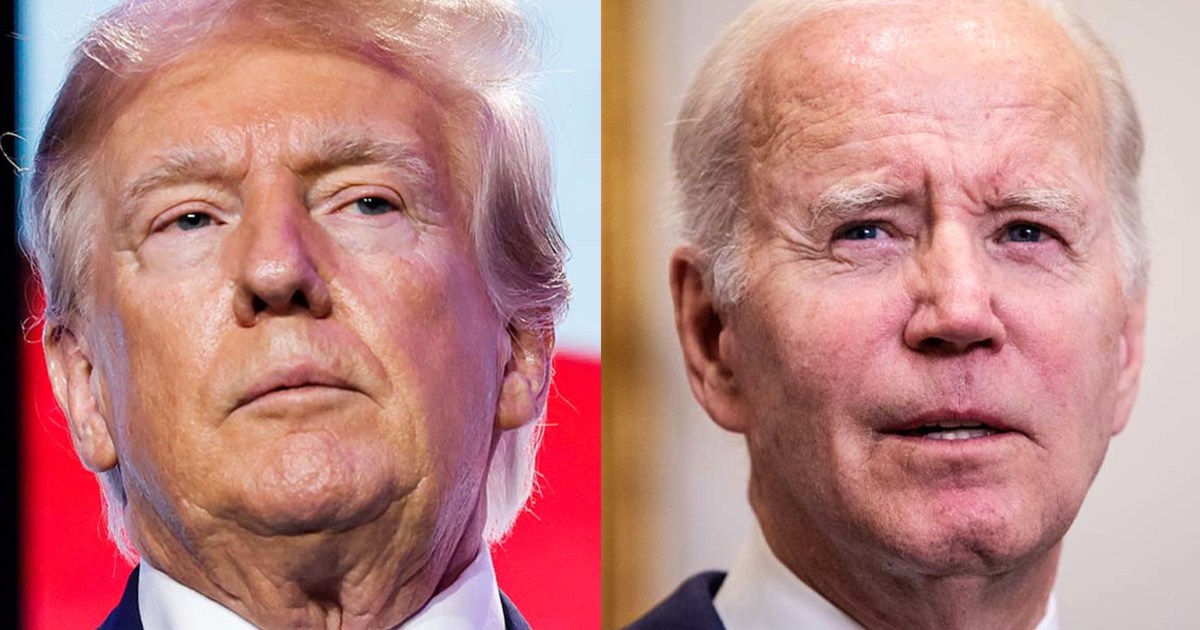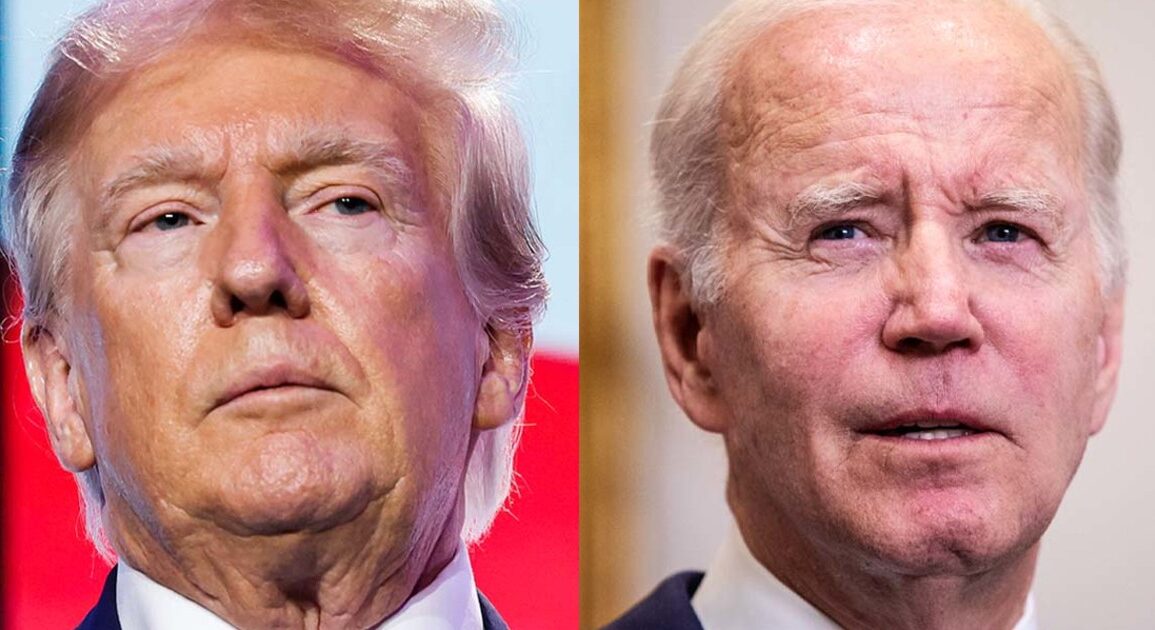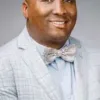
ATLANTA — Ahead of the presidential debate, both Republicans and Democrats are using the attention around the high-profile matchup to further their Black voter outreach efforts, with a particular focus on Black men.
Former President Donald Trump’s campaign deployed several high-profile Black surrogates — Reps. Byron Donalds of Florida and Wesley Hunt of Texas, along with former Housing and Urban Development Secretary Ben Carson — here on Wednesday for a Black American Business Leader Roundtable.
The event, at Rocky’s Barbershop, a Black-owned business in Atlanta, featured several local business owners, all of whom are men.
After each surrogate touted Trump’s accomplishments for Black voters to an audience primarily of reporters, Trump himself called in, repeating his often-criticized claim that his felony convictions have boosted his support among Black Americans.
“Since that happened, the Black support, I think my representatives will tell you this, the Black support has gone through the roof,” Trump said. “I guess they equated to problems that they’ve had.”
The Biden campaign was quick to pounce on what it framed as Trump’s “doubling down” on a racist stereotype.
“This might come as news to Trump, but Black and Latino voters want nothing to do with his racist stereotypes, and they know better than to buy into his lazy, shameful attempts at ‘outreach,’” Biden campaign spokesperson Sarafina Chitika said.
After the event, Rocky Jones, the venue’s owner, would not say whether either Trump or his Black surrogates’ message was convincing enough to get his support this November.
“I am looking into it. I just want to hear both sides of the story, then I’ll make my decision,” Jones said. “I just want to do what’s right. I want to vote for the person that’s going to help me and help the community.”
On Wednesday evening, Donalds and Hunt are taking their “Congress, Cognac and Cigars” tour to Fairburn, roughly 20 miles south of Atlanta, after a previous stop in Philadelphia.
The intent of the event, according to organizers, is to facilitate “a real conversation about the Black male vote, leadership and how they will impact the 2024 election.”
Efforts by Trump and his allies to pursue Black voters, with a focus on men, accelerated this month with the launch of his campaign’s Black voter coalition group and a series of events to attract voters of color in Detroit and Philadelphia.
Though Republicans remain hopeful that their efforts will translate into Trump’s picking up a larger share of the Black vote in states like Georgia, some Democrats remain skeptical.
Adrianne Shropshire, the executive director of BlackPAC, said focus groups conducted by the group of Black voters in battleground states have not suggested a significant increase in support for Trump and accused his campaign of creating that narrative “out of thin air.”
“It’s for him to be able to create this story about how much Black voters love him and then at the end of the day, when Black voters actually do not show up for him, they can be outraged about voter fraud or whatever they’re going to claim is the reason why he loses,” Shropshire said.
Atlanta-based Republican organizer Michaelah Montgomery, whose group, Conserve the Culture, has been working to boost Black support for Trump, disagreed, arguing outreach events by Trump are crucial and create “community” for newer Black conservatives who remain hesitant to voice their support for him.
“It’s important for Black conservatives to know that they have a community. Unfortunately, a lot of Black people feel like if they are conservative or leaning conservative they have to be quiet about who they’re supporting because it wouldn’t align with societal norms.”
The Atlanta outreach efforts are not entirely surprising: According to Georgia’s secretary of state, Black voters are the second-largest voting bloc in the state, making up roughly 30% of Georgia’s active voters.
But though Black voters in the state vote overwhelmingly for Democrats, pro-Biden organizers, too, are holding outreach events, aiming not to “leave any Black vote on the table in November.”
“It’s one of the more outsized demographic groups, in terms of the power that Black voters will have, in deciding, again, not only who will be president, but also speaker of the House,” said Quentin James, the founder and CEO of the Collective PAC, the largest political action committee supporting Black candidates in the country.
The group endorsed Biden alongside organizations representing Latino and Asian American voters when he visited the state in March.
The Collective PAC, alongside several other organizations, including 100 Black Men of America, plans to hold panels both before and after the debate Thursday that will feature Black political commentators, politicians and business owners speaking directly to voters “about the real-world implications of the debate material covered.”
On-site staffers will also be available to assist attendees who have not yet registered to vote, a critical component of the event.
“We estimate there’re over 800,000 eligible yet not registered African Americans in Georgia,” James said. “So there’s an opportunity to engage the folks who are not registered.”
Related debate coverage
Meanwhile, another progressive group, the New Georgia Project Action Fund, plans to launch its Black male relational organizing campaign during its debate watch party in Atlanta, aiming to engage specifically with a cohort of voters it says are often “left out of the conversation.”
“Black men are blamed after an election if the results didn’t go the way people hoped they would go, and they are scrutinized for whether and how they show up,” said Simran Jadavji, a spokesperson for the New Georgia Project Action Fund. “But in the actual conversation, in the many, many months and years leading up to election cycles, they’re not engaged in this way.”
People at the event, which is scheduled to take part at a cigar lounge, will be provided with various texts about issues organizers say are pertinent to Black voters, including affordable housing, job creation and wage increases. Should either Trump or Biden address those issues, the hope is that attendees will customize and send the texts to their respective networks.
“Us at the New Georgia Project Action Fund, we can only share so much information,” Jadavji said. “But if we have a team of 50 Black men that are then sharing within their networks, that’s far more believable, trustworthy, and then invites a lot more dialogue over the next few months.”
According to NBC News exit polling data, Trump won 11% of Georgia’s Black voters in 2020, slightly up from the 9% he picked up in 2016.



